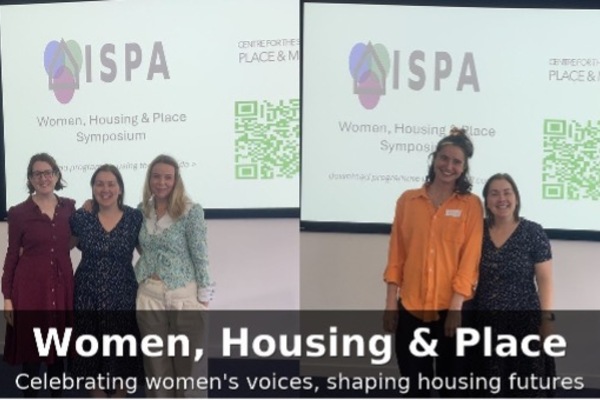On the evening of 17th July 2023, the Bibby Stockholm arrived in Portland Port. The barge had been commissioned as asylum accommodation by the UK Home Office. Like the hotels and barracks commandeered to house people seeking asylum provided since the onset of the Covid-19 pandemic, the Home Office announced in a press statement that the barge would feature ‘basic and functional accommodation, and healthcare provision, catering facilities and 24/7 security will be in place on board, to minimise the disruption to local communities’ (Home Office, 2023). The barge has 222 rooms, but the Home Office intends to accommodate 506 individuals, necessitating room sharing in confined space between strangers. Prior to the barge’s docking, the Home Office’s plans had already faced fierce criticism from charities, campaigners and the Tory-led Dorset council, the latter objecting both to the proposals being put forward without consultation. Portland has no history of accommodating people seeking asylum, and thus lacks the specialist primary care, social work and charitable services that other regions in the UK have. Significantly, the town already faces considerable pressures on its services for local residents, thus pitting Portland’s community, in conditions of scarcity, against those forced to live on the barge. Since the barge berthed, it has further been dogged by safety concerns, including those of fire hazards, a lack of life jackets and a rotten hull (Allegretti & Taylor, 2023). There is now, according to ministers, ‘no time frame’ on when the first people seeking asylum will be accommodated on the barge (Taylor, 2023).
Whether the Home Office’s plans for the Bibby Stockholm become a reality or not, they present another iteration of the rapidly morphing spatial formations of asylum accommodation. Since the rollout of the ‘Dispersal’ policy in the early 2000s, people seeking asylum have been housed largely in flats and houses in communities in participating Local Authorities. Provision of the housing was privatised in 2012, but has remained ‘dispersed’ outside of London and the Southeast. The sharp shift to warehousing formations separates people seeking asylum from contact with local residents, grassroots groups, charities and services. It places them in an institutional setting, in which their autonomy is considerable restricted. This is enhanced by the fact that financial support is reduced from £40 a mere £8 a week for ‘full board’ settings, i.e. in which meals are provided. It appears, therefore, that the barge teeters on the edge of being a prison ship. Indeed, Conservative MP for South Dorset Richard Drax is quoted in news reports as noting that the people housed on the barge ‘will be allowed out on a bus every so often but in effect will be incarcerated for quite a lot of the time’ (Morris, 2023).
Though it might be tempting to identify carcerality in the particular spatial formation of where people are forced to reside, my research approaches carcerality rather as a set of relations or a condition, following Moran et al. (2018). Considering carcerality as such forces a reconsideration of asylum accommodation prior to the use of hotels, barracks and barges. These latter formations can instead be considered as a spatial expression of already existing sets of relations. These relations can most clearly be seen in the interaction between asylum legislation and the contracts that govern the privately provided asylum accommodation. Punitive asylum legislation severely restricts access to the labour market and completely disallows access to benefits, housing and other welfare support. This means that people seeking asylum have no other accommodation options than the private AASC provision. This setup can be described, following Conlon and Hiemstra (2016), as ‘captive consumption’, since private housing providers have value turnover assured by the fact that individuals must reside in their accommodation (see also: Martin, 2021; Martin & Tazzioli, 2023), consuming the services for which contractors are paid on a per head per day basis by the Home Office.
The contracts further shape the minutiae of everyday life for individuals in asylum accommodation. People seeking asylum cannot have friends or loved ones stay overnight in their accommodation, and must apply to the Home Office for permission to stay away from the property for more than 7 days. Housing providers hold duplicate keys and staff routinely enter accommodation without notice. In addition, through their contact with people living in asylum accommodation, housing contractor employees are obligated, according to the contract, to report certain events to the Home Office within one working day. The list of events is extensive, ranging from the mundane to the extreme, and reports could be made on highly subjective judgements – a case in point being:
‘j. Any serious event, incident or occurrence concerning a Service User and/or the premises’ (AASC Contract Terms and Conditions, 2019, p.175).
Some events relate directly to criminality, such as:
‘g. Any reasonable suspicions that a Service User may be engaged in criminal activity, violent extremism or radicalization’ (AASC Contract Terms and Conditions, p.175).
Such a stipulation, if reported and escalated, has the potential to link to and trigger punitive effects which derive from asylum legislation. According to the Immigration Rules, if a person who has claimed asylum receives a custodial sentence of 12 months or more, their asylum claim is automatically refused. A custodial sentence of less than 12 months may result in a rejection of their claim. Thus, within asylum accommodation, irrespective of its specific spatial formation, people are subjected to monitoring, surveillance and additional penalties for criminality than, say, a British Citizen living in social housing or the private rental sector. This is nowhere more apparent than the provision of the contract which states that the contractor must allow Home Office access to asylum accommodation for:
‘installing, maintaining and removing appropriate electronic monitoring equipment for use in the monitoring of Service Users within the relevant Accommodation’ (AASC Contract Terms and Conditions, p.146).
An interview participant who formerly worked at the Home Office assured me that there was no way that this clause would be resourced; as he put it, ‘Who's going to be sitting, watching or listening to any of this stuff?’. Whilst I am inclined to agree with him that, operationally speaking, this seems unlikely, the concerning element of this provision is the relations and conditions that it creates and allows for.
Further events which must be reported to the Home Office within one working day include ‘h. Any reasonable suspicion that a service user may be living beyond the means of their support’ and ‘i. Any reasonable suspicion the Service User may be working for payment’ (AASC Contract Terms and Conditions, p.175). These events lead to housing officers and Home Office staff performing checks on the contents of people’s homes – if either ‘suspicions’ are ‘confirmed’ and reported to the Home Office, a person’s asylum support can be cut off, meaning they may also be evicted. As one research participant told me, housing officers would check inside her fridge, to assess the quantity and quality of the food inside. She worried about how often she bought meat in case it indicated she was living too well and was afraid to leave pots out on the stove in case a housing officer spat in them.
What the evidence from my research suggests is that spatiality emerges out of certain carceral and economic relations, rather than necessarily being imposed by spatiality itself. These relations have already existed in the interplay between asylum legislation and housing contracts at least since privatization, making asylum accommodation carceral space, whatever its form. That said, the procurement of barracks and barges signifies a highly concerning intensification of these carceral conditions, which further distances people from the communities they find themselves in. As such, they must be resisted, along with increased efforts to engage and support those already ‘accommodated’ in hotels, houses and flats around the UK.
References/works cited
Allegretti, A. and D. Taylor (2023). First 50 people coming to Bibby Stockholm asylum barge despite safety worries, The Guardian. Retrieved from https://www.theguardian.com/uk-news/2023/jul/27/first-50-people-coming-to-bibby-stockholm-asylum-barge-despite-safety-worries.
(2019). Asylum Accommodation and Support Services Contract
Conlon, D. and N. Hiemstra (2016). Captive consumers and coerced labourers. Intimate economies and the expanding US detention regime, Routledge.
Martin, L. (2021). "Carceral economies of migration control." Progress in Human Geography 45(4): 740-757.
Martin, L. and M. Tazzioli (2023). "Value extraction through refugee carcerality: Data, labour and financialised accommodation." Environment and Planning D: Society and Space 0(0): 02637758231157397.
Moran, D., et al. (2018). "Conceptualizing the carceral in carceral geography." Progress in Human Geography 42(5): 666-686.
Morris, S. (2023). ‘It’s inhumane’: anger at plan to house asylum seekers on barge off Dorset. The Guardian.
Taylor, M. (2023). Government minister 'cannot put a timeframe' on arrival of asylum seekers at Bibby Stockholm, DorsetLive. Retrieved from https://www.dorset.live/news/dorset-news/government-minister-cannot-put-timeframe-8644609.
Vessel to accommodate migrants (2023). UK Home Office. Retrieved from https://www.gov.uk/government/news/vessel-to-accommodate-migrants.
Author
Anna Pearce is a final year PhD student at School of Geography and Sustainable Development at the University of St Andrews. Her doctoral research examines the production of asylum accommodation as carceral, value extractive space in Glasgow, Scotland. She was formerly a caseworker at the Glasgow-based Asylum Seeker Housing Project. This blog is drawn from the findings of her PhD.






